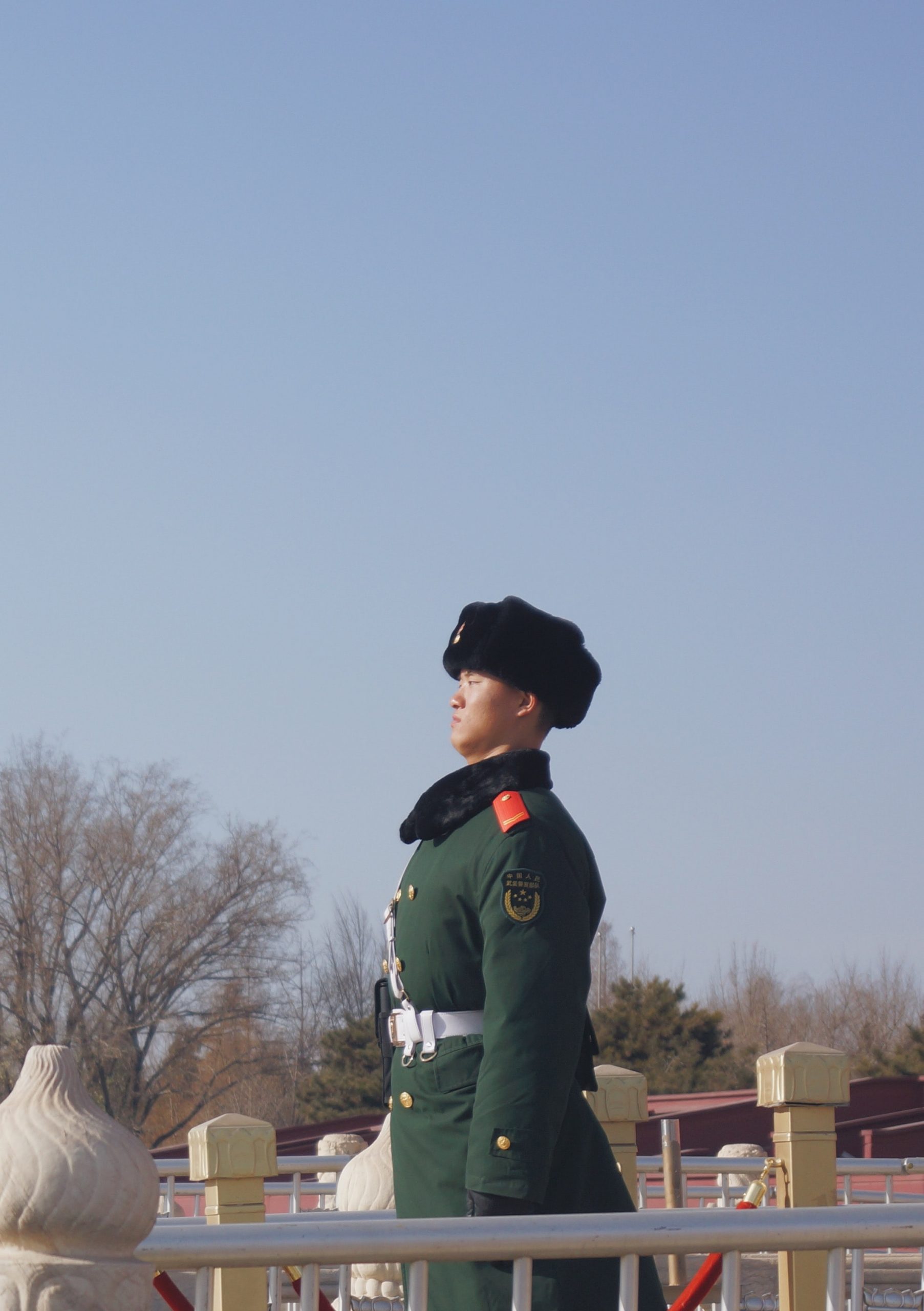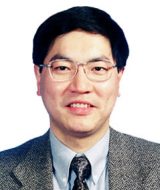
- 15 Dec 2020
The Changing Security Architecture in the Middle East: A Role for China?
![]()
This lecture is organised by King Faisal Center for Research and Islamic Studies and supported by Middle East Institute, NUS.
Abstract
The Asian Studies Unit at the King Faisal Center for Research and Islamic Studies, in partnership with the Middle East Institute at the National University of Singapore, is honored to organize a panel to discuss China’s security challenges and expanding footprint in the Middle East. The event promises to be enriching to those interested in China-Middle East relations, US-China relations and the hurdles facing the construction of a region-wide security architecture.
This public talk will be conducted online via Zoom on 15 December 2020 (Tuesday), from 5.00pm to 6.30pm (SGT). All are welcome to participate. To register, click here.
Watch the full event here:
Read the Summary of Event Proceedings:
By Saddiq Basha
Intern, Middle East Institute, National University of Singapore
China’s presence in the Middle East, and whether it aims to play a greater role in the region or even re-order the security architecture there has been the subject of much discussion. The Middle East Institute hosted a panel discussion, moderated by the Head of Asian Studies Unit at the King Faisal Centre for Research and Islamic Studies, Dr Mohammad Al-Sudairi, recently to delve into this question. The views of the three panellists, and highlights of the Question and Answer session that followed, are summarised below:
Dr Andrea Ghiselli
Assistant Professor, School of International Relations and Public Affairs of Fudan University.
Answering a question on the connection between China’s economic footprint in the Middle East and its growing security interests there, Dr Ghiselli emphasised that economics remains Beijing’s primary concern in the region. He argues that to understand China’s impact on the security architecture of the region, it is important to first answer the question – is China an actor or factor in the Middle East, and which of these two roles will it assume in the future? At this moment, China is at a crossroads and could be perceived as both a factor and an actor in the region.
China as an Actor
Dr Ghiselli said China can be considered an actor or an agent of change – one that can pursue its interests and support those of other regional actors – because of three main factors.
Firstly, China’s energy market serves as a key source of revenue for oil-producing countries in the Middle East. This becomes increasingly important as the demand for oil and other energy products is falling in other parts of the world, impacting revenues on which oil exporters depend on for their economic development and social programmes. China’s presence thus helps to foster stability since it encourages regional development and could minimise social dissent.
Secondly, China is a diplomatic heavyweight and is a permanent member of the United Nations Security Council (UNSC) and this carries a lot of clout. Finally, China is involved in anti-piracy operations in the Gulf of Aden and the United Nations Interim Force in Lebanon (UNIFIL).
These three factors allow China to actively shape the politics and security trends in the Middle East and North Africa (MENA) region.
China as a Factor
However, Dr Ghiselli also believes that it is important to consider China as a factor – a passive element – in the region, because it has significant potential liabilities.
China’s massive human and economic footprint in the MENA region means there is a significant threat to its nationals there. While Beijing has generally avoided being caught up in regional rivalries, there are exceptions. In 2011, for example, some 13,000 Chinese nationals were evacuated from Libya when the civil war broke out. China’s Foreign Affairs Ministry has periodically warned about the potential for trouble, but companies operating there typically ignore warnings and only act when trouble strikes. Dr Ghiselli warns that such behaviour could prove to be a significant liability.
China is also seen as an attractive potential partner for many countries in the region, but many regional actors equate Beijing’s interest with support for its partner nations’ regimes. The narrative from the “Axis of Resistance” is one example. Syria, Iran and Hezbollah in Lebanon all depict China as their key partner in the fight against American “imperialism”. This thread depicts China as providing critical support, both diplomatically in the United Nations and strategically as a partner in future reconstruction projects. This portrays China as not only an opponent of the West, but also of Israel and the Gulf states, misrepresenting its actual intent in the region. As an example, Dr Ghiselli cited an instance during the Syrian conflict when China used its veto at the UNSC, a move portrayed as one showed its support for the ruling regime. Consequently, Chinese envoys were deployed to the Gulf to explain that Beijing did not use its veto to defend the Assad government, but to defend the principle of sovereignty. Such episodes, Dr Ghiselli warned, could potentially shape public opinion and that of the political elites.
He argued that while China is not interested in playing a more active role by investing more and becoming a regional security guarantor, it could potentially be drawn into such a role despite its reluctance.
Dr Alessandro Arduino
Principle Research Fellow, Middle East Institute, National University of Singapore.
Dr Arduino echoed his fellow panellist’s analysis that China is an unwilling security actor in the region but could be pressured to increase its involvement in future. At present, Dr Arduino said, the security gaps related to protecting China’s Belt and Road infrastructure and its nationals have been filled by Chinese private security companies. This has resulted in the growth of China’s private security sector, to between 5,000 and 8,000 companies employing over three million officers in total. This massive sector allows China to avoid getting entangled in the Middle Eastern security quagmire.
Dr Arduino added that while most security companies continue to protect gated infrastructure, some have upgraded their services to include armoured security for vessels, especially in anti-piracy efforts along the Horn of Africa, and also the cyber security sector, such as providing facial recognition systems and other security software. Such developments underline the fact that Beijing wants to nurture the development of a professional private security sector in China – one that can operate in a complex environment, especially in countries in the MENA region that are unable or unwilling to protect Chinese investments. This would require cooperation between international and Chinese private security companies, and also with international insurance providers, especially with regards to kidnapping and ransom.
However, Dr Arduino warns that despite outsourcing its security in the Middle East, China could eventually be pressured to have its boots on the ground as it becomes increasing entangled in the regional security architecture.
Dr Shen Dingli
Professor of International Relations, Fudan University’s Institute of International Studies.
Dr Shen said China believes the peoples and countries of the region have an equal right to survive and thrive in a secure environment. However, he said, the regional rivalries have placed it in a predicament that could undermine its regional economic interests. As an example, Dr Shen cited the Israeli-Palestinian conflict, saying that while China has traditionally taken the side of the Palestinians, it has realised the need to build a relationship with Tel Aviv. However, such attempts have been misunderstood by some Arab countries and has been a source of diplomatic tension.
China has thus developed and used several diplomatic tools to realise its aim of bringing about security in the Middle East. According to Dr Shen, China has taken three main initiatives to bring about peace in the region.
The first was the introduction of a Special Envoy in 2002. The envoy’s role is to bridge the communications gap between rival nations. In May 2013, for example, the Chinese government invited both Israeli Prime Minister Benjamin Netanyahu and Palestinian President Mahmoud Abbas to Beijing. Despite China’s attempts, however, the meeting did not take place.
Another initiative is the government-linked Middle East Foundation for Peace and Development (MEFPD), which aims to promote peace-making efforts in the region. The group’s board of directors includes various high-level Middle Eastern diplomats, while Dr Henry Kissinger serves as its honorary chairman. The organisation is seen as another effort by China to reach out to the various countries and emphasise the benefits of peace and prosperity in the region through a meaningful exchange of views.
Finally, China plays a significant role in seeking to keep the region free of nuclear weapons. As a signatory of the Nuclear Non-Proliferation Treaty (NPT), China and other members convene every five years in a conference to support new initiatives to make the Middle East free of nuclear weapons. To this end, Dr Shen said he hopes the incoming Biden administration will rejoin the Joint Comprehensive Plan of Action and lift sanctions. China, he stressed, has a special role in convincing the United States and other powers to engage in collaborative efforts to bring about positive and constructive development in the Middle East.
Considering Rivalry Dynamics in the Middle East
The final question posed to all three panellists was how global and regional dynamics would affect China’s security presence in the Middle East. Specifically, this includes the intensifying Sino-American rivalry, the three-way fight for influence involving Iran, Saudi Arabia and Turkey, as well as the impact of smaller powers such as the United Arab Emirates and Qatar.
On the US, Dr Arduino stressed that while the US was rebalancing its position in the region, it will not completely leave the Middle East. Instead, he explained, the US is adopting what Vice-Admiral Samuel Paparo described as a “stabilising defensive posture” during the recent Manama Dialogue in Bahrain, an annual dialogue aimed at debating the Middle East’s most pressing security challenges. China should pay attention to this, he said, adding that while the region recognises that China is its most important investor, it also recognises its weaknesses as a security provider. He said that in future, China will be forced to increase it security footprint in the region in the future as its economic presence grows. While there may be hiccups, he said he believed China would be able to adopt a strategy he termed a “balance in vagueness” – one that allows Beijing that engage with a Middle Eastern nation without creating friction with its policies in other countries.
Dr Ghiselli, however, said China’s interests in the region are closer to that of Russia, not America’s, since they both seek to establish a multilateral order in the Middle East that is linked to the United Nations. However, he stressed that China is not necessarily anti-American, and can be equally sceptical of Russian intentions. Hence, Beijing prefers a wait-and-see approach when it comes to dealing with other superpowers in the region. On regional rivalries, China’s diplomatic position is to avoid being entangled in them as much as possible, he said, despite grave concerns in Beijing about the direction the competition is going in. However, this does not mean that the Chinese political elites and scholars view the regional rivalries in the same way. He also said he was hopeful that a new US administration would work with China to resolve some global concerns, including North Korea, Iran, and the Covid-19 pandemic.
Highlights from the Q&A
During the Q&A, a question was raised about how China is able to reconcile its commitment to non-interference in the affairs of other states while maintaining a relationship with Iran, which wields growing influence in countries such as Iraq, Syria and Lebanon, among others.
Dr Shen answered by saying that while China upholds the principle of non-interference, the interconnectedness of the world makes it difficult to maintain complete neutrality. To him, China’s engagement differs from that of the US, since China engages bilaterally with regional countries and only intervenes when local governments acquiesce.
Another question concerned the impact of regional issues such as the Palestinian question and the Saudi-Iran conflict on China’s economic interests, and Beijing’s approach to resolving them.
China, Dr Ghiselli said, could attempt to mediate between Saudi Arabia and Iran, both bilaterally and multilaterally, since both are major oil-producing countries. On the Palestinian question, Dr Ghiselli believes China has no interest in solving the problem since it does not want to alienate Israel, which is an important technological and economic partner. Dr Shen added that China’s previous, failed, attempts to mediate in the conflict have led it to recognise that it is in no position to come up with a solution.
About the Speakers

Principal Research Fellow,
Middle East Institute, NUS
Dr Shen Dingli
Professor
Institute of International Studies,
Fudan University
Dr Andrea Ghiselli
Assistant Professor,
Fudan University
Dr Alessandro Arduino is the principal research fellow at the Middle East Institute (MEI), National University of Singapore. He is the co-director of the Security & Crisis Management International Centre at the Shanghai Academy of Social Science (SASS-Polito) and an external associate at Lau China Institute, King’s College London.
His two decades of experience in China encompasses security analysis and crisis management. His main research interests include China, Central Asia and Middle East and North Africa relations, sovereign wealth funds, private military/security companies, and China’s security and foreign policy.
Alessandro is the author of several books and he has published papers and commentaries in various journals in Italian, English and Chinese. His most recent book is China’s Private Army: Protecting the New Silk Road (Palgrave, 2018). He has been appointed Knight of Order of the Star of Italy by the president of the Italian Republic.

Professor Shen Dingli, a physicist by training, is a professor of international relations at Fudan University. He is the founder and director of China’s first non-government-based Program on Arms Control and Regional Security at Fudan University.
Dr Shen teaches at Fudan University graduate courses “Nonproliferation and International Security”, “Science/Technology and National Security”, as well as doctoral courses “International Security: Theory and Practice”, and “Regional Security”. He co-teaches undergraduate courses, “China and the World”, and “ContemporaryAmerica”, at Fudan. He has taught China’s foreign policies at Colorado College since 2002.
His research areas cover China-U.S. security relationship, nuclear arms control and disarmament, nuclear weapons policy of the United States and China, regional nonproliferation issues concerning South Asia, Northeast Asia and Middle East, test ban, missile defence, export control, as well as China’s foreign and defence policies. He has co-edited “China’s Development Report”, “China and South Asian Relations in the 1990s”, “Conservatism and American Foreign Policy”, “Realism and U.S. Foreign Policy” and published over 500 articles and papers, 1/2 of which abroad in a dozen foreign languages. In addition, he has published over 20 papers in physics in China and abroad.

Dr Andrea Ghiselli is a researcher at the School of International Relations and Public Affairs of Fudan University.
Dr Ghiselli is also a non-resident research fellow with the TOChina Hub and project manager of the ChinaMed Project.
He is also the editor of the ChinaMed Observer, a monthly review of the media publications in China, North Africa, Southern Europe, and the Middle East on China’s role in the wider Mediterranean region.
In general, my research focuses on Chinese foreign policy making and China-MENA relations.




